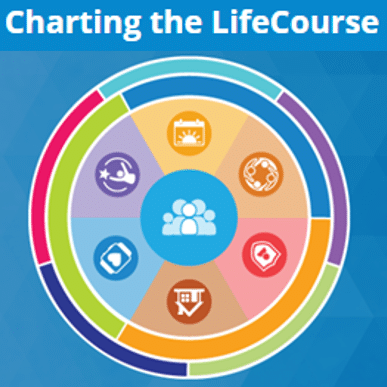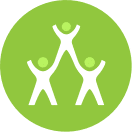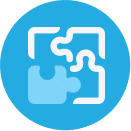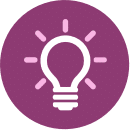Learn more about GCDD Arkansas’ advocacy efforts through our videos on YouTube
GCDD Arkansas has a channel on YouTube with this and many more advocacy videos. Please visit our channel!
Types of Advocacy
Self Advocacy – Self-Advocacy is speaking up for oneself.
Individual Advocacy – Individual advocacy is taking action when you think something is unfair, or that someone is being treated badly, and you would like to do something to change it. This also includes being part of advocacy groups or support groups, volunteering or participating in events, giving testimony to the legislature or providing public input, and many other actions.
Systems Advocacy – Systems Advocacy is about changing policies, laws or rules that impact how someone lives their life.
Council Supported Advocacy Initiatives
The Council supports advocacy initiatives through our collaborations with our DD Network partners and other community-based partners across Arkansas. To complete work under Goal 1 of our 5-year plan, we look for projects that support people with developmental disabilities and their families to be active advocates in their communities, improving their lives, the lives of others and the service system.
The Council supports a variety of projects across the state focused on supporting and increasing advocacy. You can find out more on our Funded Projects page.
Why get involved in Advocacy?
If it wasn’t for advocacy, people with intellectual and developmental disabilities would not be living lives of independence. They would not be receiving the supports and services needed to be successful, contributory members of our society. Nothing is more essential to ensuring meaningful, productive lives in the community for people with disabilities than strong, consistent advocacy.
It is absolutely essential that people who care about individuals with disabilities make their voices heard, especially with their elected officials. One of the best way for allies, friends and supporters to join in advocacy efforts is to write your local and state elected officials. Together, advocates have built an amazing system of services for people with intellectual and developmental disabilities. But, with your involvement in advocacy, that system can be improved, and you can help to ensure that it continues to meet the needs of people with intellectual and developmental disabilities into the future.
For many, advocacy means civic and community life engagement – getting involved in your community and accepting your civic duty as an American, an Arkansan. You can do it, whether you have a disability or not, your community needs you! Learn more here.
Why is disability advocacy so important?
Throughout history, people with disabilities have been hidden away or subjected to abuse, ignorance and prejudice. The power of disability advocacy has radically shifted thinking to recognize the rights of all people with a disability to live integrated lives, in the community, with choices equal to others.
Disability advocacy came from the disability rights movement. Significant battles have been fought for the rights of people with disabilities, including the right to have access to a range of support services necessary to support living an independent, unsegregated (integrated, inclusive) life. One of the most important of these hard-won rights being the right of individuals with disabilities to choose for themselves which type of supports and services are best for them. And more recently, the right to choose employment (competitive, integrated employment).
Disability advocates joined forces to demand equal treatment, equal access and equal opportunity for people with disabilities. They challenged stereotypes, rallied for political and institutional change, and lobbied for self-determination – on the streets, in the courts, across the media, within service agencies and organizations, and in the halls of power.
Today, individuals with disabilities still face many barriers. Therefore, disability advocacy remains so important. Continued support and involvement is needed, by all types of advocates, to ensure that these individuals enjoy the same rights and freedoms as people without disabilities. Disability advocacy continues to promote equal opportunity for people with disability to participate in all areas of life including: Health, Safety, Education, Employment, and Income. Disability advocacy will ensure that our service and support system is continually improved. By participating in advocacy, you can help to make sure that our system continues to meet the needs of people with intellectual and developmental disabilities the years to come.
Nothing About Us Without Us! The Importance of Self-Advocates
“Nothing About Us Without Us!” is a phrase used to communicate the idea that no policy should be decided by any representative without the full and direct participation of members of the group(s) affected by that policy. It came into use in disability activism during the 1990s as a rallying cry to ensure that individuals with disabilities are always included in the design of support and service systems (which provide access to needed community services, individualized supports, and other forms of assistance that promote self-determination, independence, productivity, and integration and inclusion in all facets of community life for individuals with disabilities).
The National Association of Councils on Developmental Disabilities (NACDD) has developed the “Nothing About Us Without Us” Best Practices for Supporting Statewide Self-Advocacy Organizations was developed by NACDD’s Self-Advocacy Committee and numerous self-advocate leaders from advocacy organizations around the country. This guide provided information to DD Councils on how best to support building and sustaining strong and active self-advocacy organizations in the United States and Territories.
Self Advocates Becoming Empowered (SABE) and their technical assistance project, SARTAC, the Self Advocacy Resource and Technical Assistance Center, also have made available many helpful resources on improving advocacy skills, building and supporting local self-advocacy groups, civil rights (disability rights ARE civil rights!) and diversity, among other topics.
Why is “culture change” important? (Inclusive Culture)
It really is all about culture change. In the past 50 years, the power of disability advocacy has fostered this culture change by shifting cultural thinking to recognize the rights of all people with a disability to live integrated lives, in the community, with choices equal to others. Communities and organizations that embrace inclusive culture value and appreciate each person for their individual differences and experiences. Communities and organizations can benefit greatly from these diverse perspectives. Promoting culture change and creating inclusive culture isn’t difficult, but does require some forethought. In the end, inclusive culture benefits everyone, enriching the lives of individuals with and without disabilities.
Live Your BEST Life
What does your best life look like?
- Self-Determined
- Supported
- Person-Centered
At home, at work, and within the community.
Self-Determination is the freedom to live as you choose, or to act or decide for yourself what you want or need. You have the same right to self-determination as anyone else (with or without a disability) and are entitled to freedom, authority, and supports to exercise control over your own life. You have the right to self-determination, regardless of your guardianship status.
Family members, friends, and other allies may play a critical role in your self-determination by providing supports and working collaboratively to achieve the your goals. Families, friends, and other allies should understand, recognize, and promote your rights and responsibilities of self-determination and respect the limitations on their own authority. Service providers, educators, and substitute decision-makers must recognize and respect your right to self-determination and the limitations on their authority.
Supported Decision-Making (SDM) allows you to make choices about your own life with support from a team of people you choose. Individuals with disabilities select people they know and trust to be part of a support network to help them make important decisions about their own life. Supported decision-making promotes self-determination, control, and autonomy. It fosters independence and productivity.
We ALL engage in self-determination through supported decision-making in our daily life. We consult with family or friends, colleagues or classmates, and other experts like mechanics or mentors before we make decisions. We may seek support to decide whether to go on a date, buy a used car, change jobs, renew a lease, or undergo cataract surgery. We confer and consult with others, and then we decide on our own. All Arkansans should have the right to self-determination, whether they have disabilities or not.
SDM involves tools that help you identify the type or types of help you need and how to go about getting that help (recognizing that everyone is unique – different people need different kinds of help). Some people may need help with many types of decisions, and others may need help with only one or two. Some people need one-on-one support and discussion about the issue at hand, but a team approach may work best for others. The SDM model can be tailored to help you find solutions for your specific needs.
Person-Centered is planning based on your wants and needs – thinking and planning centered around you, for you. This way of planning keeps control in your hands, providing customized assistance in specific ways and in specific situations that are useful to you, in the manner you choose.
Tools

You can find some very helpful free tools from Charting the LifeCourse using the information and links below. LifeCourse offers person-centered planning tools that can help you get to living your best life!
Charting the LifeCourse is designed to be used by people with disabilities for planning their own lives, and by their family members and/or their staff to better support their loved ones or the people they serve. The LifeCourse framework and tools can help organize ideas, vision, and goals, as well as problem-solve, navigate, and advocate for supports. According to their website, the Charting the LifeCourse framework is an authentic grassroots activity, driven by the core belief that “all people have the right to live, love, work, play and pursue their life aspirations,” and the question “What do families need to know to support their family member with a disability across the lifespan?”
This is a person-centered, holistic program that focuses on self-determination for people with disabilities. It allows a person with disabilities to participate in their own life, on their own terms. Family and caregivers are an important part of the process but are not the primary decision-makers.
Start here to find a video and links to the basic tools. Here you will find both Person Centered tools and Family Perspective tools.
You can find out more about Charting the LifeCourse and the tools online at www.lifecoursetools.com
Find the tools that work for you and start living your best life today!
Other Resources:
Arkansas People First (APF)
https://www.facebook.com/ArkansasPeopleFirst/
Arkansas People First is a statewide self-advocacy organization with chapters across Arkansas.
Contact: Shannon Rivas, APF State Secretary/APF Committee Coordinator
[email protected]
Self-Advocates Becoming Empowered (SABE)
Self Advocates Becoming Empowered
Self Advocates Becoming Empowered (SABE) is a national self-advocacy organization. They are a national board of regional representatives and members from every state in the US. SABE’s mission is to ensure that people with disabilities are treated as equals and that they are given the same decisions, choices, rights, responsibilities, and chances to speak up to empower themselves; opportunities to make new friends, and to learn from their mistakes.
Self Advocates Becoming Empowered mailing address: PO Box 872, Mason, OH 45040
Email: [email protected]
SARTAC Self-Advocacy Group Resources
Self Advocacy Resource and Technical Assistance Center (SARTAC), a project of SABE, provides a tremendous number of resources for self-advocacy groups on their website. You can access resources by topic. Topics include Accessibility, Advocacy, Building Strong Boards, Event Planning, Fundraising, Getting People Involved, Keeping Track of Money, Running an Organization, Social Media, and many more.
» Visit the SARTAC Resources page: https://selfadvocacyinfo.org/resource/
SARTAC Thursdays – Zoom Meetings –
SARTAC is hosting weekly Zoom meetings about topics that are important to self-advocates. SAME time and SAME link, every Thursday at:
1:00 pm Eastern (ET), Noon Central (CT), 11:00 am Mountain (MT), and 10:00 am Pacific (PT)
Join on a computer, tablet, or smartphone
https://zoom.us/j/324815633
Meeting ID: 324 815 633
Or call 1-929-436-2866
TASH
TASH is a community of professionals and advocates committed to positive and lasting change in the lives of people with significant disabilities. Members are family members of people with disabilities, advocates with disabilities (sometimes known as self-advocates), university researchers and students, teachers and school administrators, support providers and many others. TASH’s difference is that strong social justice values — equity, opportunity and inclusion—drive their work. Together, members promote evidence-based practices developed through research and advanced through training, publications, and advocacy.
Location: 1825 K Street NW, Suite 1250, Washington, DC 20006-1202
Phone: (202) 817-3264
Email: [email protected]
Allyship – We all need allies!
ally (noun) – a person who is not a member of a marginalized or mistreated group but who expresses or gives support to that group; one that is associated with another as a helper; a person or group that provides assistance and support in an ongoing effort, activity, or struggle.
A person with a disability defined an ally as “someone who supports the cause of a marginalized group — women, people of color, people with disabilities, people in the LGBTQ community, people with low income, etc. — and uses their privilege to learn from that group and amplify their cause.”
About one in four adults in the U.S. experience a disability. Chances are, you know someone with disabilities. Do you wonder what role you can play in ensuring equity for people with disabilities? Some people advocate actively for the rights of people with disabilities, while others stand alongside people with disabilities, serving as their allies and supporting advocacy efforts.
Just like other skillsets, we can learn ways to be better allies! The first step towards being an effective ally is to be educated about the basics of disability, including types of disabilities and the laws and policies regarding disability, proper disability etiquette and how to use respectful language. Read below for more information.
Partners for Inclusive Communities (Partners) is offering a webinar series of trainings about disability allies. Partners is Arkansas’ University Center on Disabilities (UCED).
Partners periodically offers the Ally Training Series. This consists of 3 web-based trainings, presented via online meeting platform. Speech-to-text (TypeWell) services are provided, but if you need additional accommodations to participate in these trainings, please contact Kiah Hall by email at [email protected].
The Ally Training Series includes:
- How to be an Ally
- Allies in Action
- Who’s Your Ally
How to be an Ally – This training is a start to understand the best way to support people with disabilities as an ally. With that in mind, remember everyone is an individual. Everyone needs support. Children with disabilities rely on their family and staff for support. Sometimes as people with disabilities grow older the type of support changes. This training is to recognize that people with disabilities have the same rights as everyone else. Participants will gain some tools for how to be an Ally.
Allies in Action – Hopefully now you have a basic understanding of what it is to be an Ally to people with disabilities, let’s talk about what that looks like in practice. In this training, we will go more in depth into allyship and talk about real examples of being an ally. Allies in action will help you understand the difference between support versus direction, how to really be a good ally do people with disabilities, and how not to have power over but have power with.
Who’s Your Ally – Who’s Your Ally is intended for people with disabilities who want to learn more about what an ally is and how they can have POWER WITH the people who support them. Everyone is an individual, and to have the life you want and need you need to know who will support you and who you can trust.
Please contact Kiah Hall for more information on the training series (email [email protected]) or visit this webpage.
You may also contact Partners by calling 800-342-2923 (V/TTY) or 501-301-1100 (V) or by email to [email protected]
The Centers for Disease Control and Prevention (CDC) has information on Allyship at this website Become a Disability A.L.L.Y. in Your Community and Promote Inclusion for All.
ALLY:
A – Acknowledge and respect individual experiences and abilities.
L – Learn about different disability types.
L – Leverage your influence to promote accessibility and inclusion.
Y – Yield the floor to people with disabilities to help identify and eliminate barriers.
#DisabilityALLY
Power With vs Power Over, and the Power Within
One concept that we challenge you to think about is exercising Power With, not Power Over. When you are an ally, or thinking of becoming an ally, you can challenge yourself by examining your own actions and values when it comes to this topic.
“Power is the ability to achieve a purpose. Whether or not it is good or bad depends upon the purpose.”
– Dr. Martin Luther King Jr.
Think about the way that power is distributed in your life, the way we each have an effect. Power structures are shaped by who is making the choice and by who is being affected. When one person or party makes a choice and it affects someone else, we call that power over. When a group of people make a choice that affects them all, or a person makes their own choices with the support of others (supported decision making), we call that power with. When a person has the sense of self worth and the confidence to make a choice which primarily affects them alone, they are using the power within.
Power With
Power With is a value based on mutual support and collaboration. It means you support others to hold power utilizing multiple individual’s ideas, strengths and knowledge. It involves finding a common ground.
People, organization and systems can adopt the “power with” model or value. This usually means coming to an agreement about roles and responsibilities of all parties involved. Within the realm of people with disabilities, this might be a supported decision making agreement. Within an organization, this may mean creating a shift in power to unlock creativity, reduce conflict, and build capacity. Within larger systems, it may mean shifting power structures to advance equity and create a system that better serves everyone.
Power Over
Power Over is a value based on a system that organizes or ranks things or people according to an understood level of power or importance (also known as hierarchy – at its most basic, hierarchy means the control of the higher over the lower). When most people think of power, what we think of is power over. For example, parents have the power to tell their children when curfew will be; bosses tell their employees what the quota will be; police tell drivers when to pull over; judges determine what consequences will be. Everyone has power over something. Or do they? When it comes to people with disabilities, this is not always the norm.
For some people with disabilities, their experience with power over has negative associations. Based on their lived experience, they may expect repression, coercion, discrimination and even abuse. Their only interaction with people of power may have involved another person taking their power and using it to dominate them and prevent them from gaining their own power, or event to seek help.
Without positive role models and information on what healthy relationships look like, this pattern may be repeated. We see it everyday in personal relationships, in communities, in institutions and in the workplace. This is why we challenge you to examine your own actions and values when it comes to this topic.
Power Within
Power Within is a value based on taking control of your own life, and making positive decisions based on what you want. It has to do with a person’s sense of self-worth and knowledge. This may also be referred to as personal empowerment. Personal empowerment is not about power over others, but recognizes complete responsibility for self and the choices made by self.
Personal empowerment means giving yourself permission to succeed. It’s similar to self-esteem and self-confidence, but empowerment comes when you move from intention into action. You have the ability to imagine your best life – and to take action to make it happen. You don’t have to “go it alone.” Chances are, you’ll need the input, support and guidance of others to achieve your objectives. That is where a good ally may be helpful.
Sometimes people need support, encouragement, and the right tools, to have the confidence to speak up for what they want and what they need. Being an ally means you can support others to have power within.



